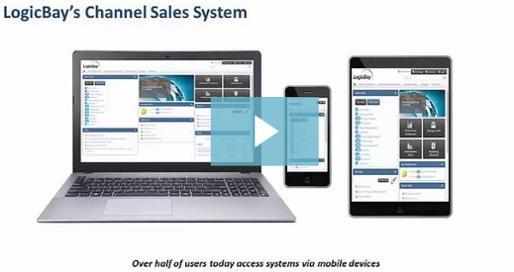In a perfect world, every sales channel would be a great performer. In reality, any indirect sales ecosystem is going to have over-performers and under-performers. It's a familiar adage: 80% of the performance comes from 20% of the channel.
One of the things that separates the truly great channel managers from all the rest is having the ability to bring the under-performers up to par. Most of the time eliminating the sales channel isn't always a wise choice. It's occasionally necessary, but should be considered a true last resort when, generally, working smarter to re-engage your channel partners will be a much less costly option.
This will almost certainly require some time and hands-on intervention, but when done properly, the right tools and strategies can help you breath new life into an under-performing channel program.
Using Smart Channel Management Strategies To Improve Your Lowest-Performing Partners
Drill down to find the key problem areas
To really start getting to the bottom of channel partner issues, you need to start by asking your partners what's missing. A regular partner survey is a logical place to start and can provide plenty of insight into what's going wrong.
Are they not getting enough leads? Are they not converting leads to sales? Are there service issues causing them to fail to properly support customers once converted? Are there too many conflicts between marketing and sales? Are conflicts between channels causing their sales to be 'cannibalized' by other partners?
There are plenty of potential causes, and each will require different solutions. Being able to collect this data over time will help you determine how much progress you are making.
Create clear and achievable benchmarks for improvement
"What's measured is what's matters." Or similarly, "If it's not measured, it's not managed." You get the idea. Real improvement among partners requires a clear road-map which they can adhere, backed by goals which are measurable and realistically obtainable within a given time frame.
Don't expect overnight turnarounds. Create a series of way-points on the road-map which allow your partners to progress towards improvement over the course of months, quarters, or years
Spend hands-on time with their staff
Take the time to get to know the management team at the partner level. Find out how they see their company, and what problems & challenges they perceive within their own organization. If they're worth doing business with, they should have some awareness of these issues and be able to discuss them.
Whenever possible, do this in-person. Get to know their sales and marketing staff. Look for areas of improvement.
You are bound to find partners that are unwilling to spend the time or share these challenges with you. More often than not, these are the partners that aren't willing to put effort into improving, and that may indicate it is time to move on.
Play to their strengths
Don't simply focus solely on the negative - that gets tiring and is terrible for morale. Look for the best areas within their organization as well, and think about how those could be leveraged for greater effect. If, for example, their marketing is weak but they have an excellent sales team, look for solutions which involve funneling more leads to them without expecting overnight improvement from marketing.
Channel management doesn't necessarily mean creating a one-size-fits-all template for partners, and expecting them to all adhere to it perfectly. Adapt strategies to match the real-world skill set their employees possess.
Get help from other partners
If you or a trusted delegate aren't in a position to spend too much time with the under-performing partner directly, look to some of your best partners for help. See if they'd be willing to loan a top agent to the under performers for a time, to conduct classes or do one-on-one sessions with employees who are struggling.
Sometimes, a pep talk is more effective when it's coming from someone else who's "in the trenches" rather than from management.
Give constant feedback throughout the process
Establish a set schedule of meetings with the partner to discuss their progress, such as monthly or bi-weekly. Don't ever let them feel like they're being hung out to dry. This personal focus will help ensure they continue to feel valued, and maintain motivation to improve over the weeks and months ahead.
Likewise, be sure to give praise -both collectively and singly- wherever real improvement happens. Highlight the successes, then keep pushing for more work in areas which haven't improved enough.
Partner Relationship Management Software Makes It Easier
Every stage in this channel management process can be improved significantly with a PRM solution in place. Having a single source for data, communications, training materials, and sales & marketing content makes partner rehabilitation far more achievable.
Whether you're looking to grow a stable partner ecosystem, or need help improving one that's stalled out, LogicBay can be your channel management partner. Want to see for yourself how our PRM system works? Check out the video below:

